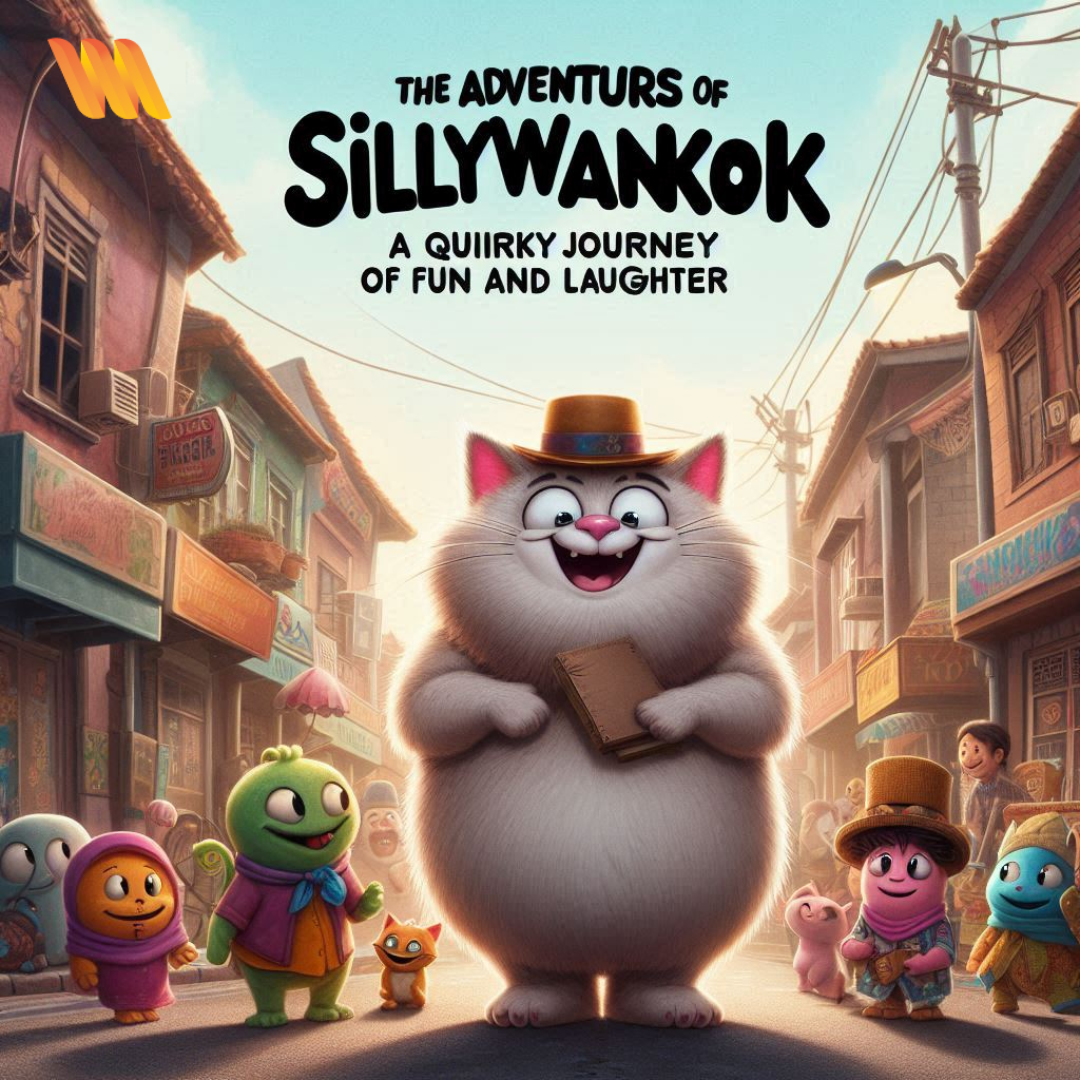When you hear the term “silly wankok,” it may raise a few eyebrows, as it’s not a commonly used phrase in most everyday conversations. But for those who are familiar with it, the phrase holds an interesting and unique place in cultural discussions. The term “silly-wankok” may sound bizarre at first, but it embodies a quirky, playful aspect of language that brings out humor, confusion, and curiosity. In this article, we will explore the origins, meaning, and possible implications of “silly-wankok,” shedding light on its significance and use in modern conversations. Let’s dive into what makes this term so intriguing and the reasons why it might just be more relevant than you think.
The Origins of Silly-Wankok
The exact origins of the phrase “silly-wankok” are somewhat elusive, making it an interesting topic for linguists and cultural enthusiasts alike. While it may not have a widespread or documented history like other slang terms, “silly-wankok” is thought to have emerged as part of internet culture, possibly starting as a random combination of words that caught the attention of online communities. Some believe it started in niche forums or chat rooms where users created funny and nonsensical phrases just for the amusement of others.
The term may also have connections to other playful expressions and terms of endearment or mockery used within specific groups or regions. As is the case with many internet-born phrases, “silly wankok” could have evolved from a blend of absurdity and humor, appealing to those who enjoy creating words or phrases that defy conventional meaning. Over time, it became more widely recognized and began to take on its peculiar significance.
What Does “Silly Wankok” Mean?
At first glance, “silly-wankok” might seem like a jumble of words without much meaning, but like many quirky expressions, it has gained traction for its ability to elicit humor. In essence, the phrase is often used to describe something or someone acting in a ridiculous or nonsensical way, typically for comedic effect. The word “silly” suggests something playful or absurd, while “wankok” could be seen as an invented term that adds a layer of fun and absurdity to the expression.

Depending on context, “silly-wankok” can be used in a variety of ways. It might be directed at a person who is being overly dramatic or making a situation unnecessarily complicated. Alternatively, it could describe a situation itself—such as a moment of chaotic, lighthearted confusion. Regardless of how it’s used, the key element of the phrase is its lighthearted tone, which helps disarm any potentially negative connotations.
The Role of Humor in “Silly Wankok”
Humor is often at the core of the term “silly wankok.” The phrase encapsulates an absurd, almost nonsensical sense of humor that is so prevalent in modern internet culture. It reflects how people often use humor to navigate difficult or awkward situations, and how they seek to engage with others in a way that is non-serious but still memorable. Whether in the context of social media memes, videos, or internet threads, phrases like “silly-wankok” serve as a reminder that humor can be used as a tool for connecting with others, even in the most unusual or bizarre ways.
The use of nonsensical language, in particular, highlights the creativity of online communities. As people invent new phrases or memes to convey humor, the term “silly wankok” becomes part of this ever-evolving lexicon, providing a unique way to express ideas without needing to adhere to traditional linguistic structures. In a world where words are constantly being repurposed and redefined, “silly wankok” stands out as an example of how language can evolve, influenced by the collective imagination of those who use it.
How “Silly Wankok” Relates to Other Internet Slang
The phenomenon of creating unique, humorous slang is not new, and “silly wankok” can be compared to other internet-born phrases that have gained popularity. Terms like “lol,” “troll,” or “meme” have taken on new meanings in the digital age, and “silly-wankok” follows a similar trajectory, starting as a niche expression before finding its place in the broader lexicon.
Like other internet slang, “silly wankok” also thrives on its ability to be modified and adapted by users. It can be combined with other phrases, used ironically, or even altered to fit particular contexts or cultural references. This adaptability is what gives phrases like “silly wankok” their enduring appeal, as they can be continually reshaped to fit the evolving nature of online discourse.
The Cultural Impact of “Silly Wankok”
The cultural impact of phrases like “silly wankok” can’t be understated, especially in a world where digital communication shapes the way people connect with each other. These phrases become part of the collective consciousness, often representing specific groups or subcultures. For some, using “silly wankok” might be a way to communicate with like-minded individuals who understand the underlying humor or absurdity.
Moreover, the rise of memes and viral content means that phrases like “silly wankok” are often part of larger cultural movements or trends. As internet culture continues to evolve, these phrases serve as markers of the time, capturing the humor, sensibilities, and social dynamics of the online world.
Using “Silly Wankok” in Everyday Conversations
Though it originated in the realm of internet culture, there are now many ways that the phrase “silly wankok” can be incorporated into everyday conversations. For example, if someone is being overly dramatic in a situation, you might say, “Oh, come on, don’t be such a silly wankok!” Alternatively, it could be used in a more self-deprecating way, where you describe your own behavior: “I can’t believe I just did that… what a silly wankok moment!”
The key to using this term effectively is understanding that it’s all in good fun. It’s not meant to be offensive, but rather an expression of light-heartedness and humor. By using “silly wankok” in conversations, people can show that they don’t take things too seriously and are willing to laugh at the absurdity of life.
The Future of “Silly Wankok”
Given how quickly language evolves, it’s impossible to predict how long “silly wankok” will remain in the spotlight. It could eventually be replaced by another internet meme or slang term, or it might endure as a lasting part of digital communication. Regardless of its future, the term will always hold a special place in internet culture, reflecting how language can be shaped by creativity, humor, and the collective imagination of online communities.

As we continue to communicate more through digital platforms, it’s clear that phrases like “silly wankok” are not just fads. They represent a growing trend where humor and language intertwine to create something uniquely modern. For now, “silly wankok” remains an amusing reminder of the playful side of language and the ever-changing nature of internet culture.
Quick Facts About “Silly Wankok”
| Fact | Details |
|---|---|
| Origin | Thought to have originated in online communities as a humorous phrase. |
| Meaning | Used to describe something absurd or nonsensical, often with a humorous tone. |
| Cultural Impact | Became popular as part of internet slang, reflecting the playful side of online discourse. |
| Usage | Typically used in informal or humorous contexts to lighten the mood. |
| Longevity | Its relevance continues to grow as internet slang evolves, with no clear end in sight. |
The Influence of Social Media on the Spread of “Silly Wankok”
In the digital age, social media platforms have become powerful tools for the rapid dissemination of language, memes, and cultural trends. Phrases like “silly wankok” are often propagated across social networks such as Twitter, TikTok, Instagram, and Facebook. These platforms allow users to share and remix content, turning simple words or phrases into viral sensations. Through this process, “silly wankok” may have gained traction in part due to its quirky nature, making it an ideal candidate for memes, video clips, and even hashtag campaigns.
When a phrase like “silly wankok” is shared within these spaces, it often gains new interpretations and uses. For instance, one person might use it to describe a funny mishap, while another might adopt it as a catchphrase for their online persona. Social media not only acts as a breeding ground for new slang but also amplifies its use across different groups and demographics. As a result, “silly wankok” has the potential to transcend its initial internet community and become more widely recognized in global online conversations.
The Role of “Silly Wankok” in Digital Identity
One interesting aspect of phrases like “silly wankok” is their ability to help people construct and communicate their digital identities. Online interactions often rely on humor and the shared understanding of certain terms, allowing people to connect over common language and experiences. By using a phrase like “silly wankok,” individuals signal that they belong to a certain digital subculture, one that values humor, creativity, and the playfulness of language.
In online gaming communities, for example, a player might use “silly wankok” as a playful taunt or an expression of frustration after an unexpected event in the game. Similarly, influencers and content creators may adopt the phrase to engage with their followers, adding a personal touch to their online persona. In this way, “silly wankok” serves as more than just a funny expression—it becomes part of the fabric of how people define themselves in digital spaces.
Silly Wankok and Its Relation to Absurdist Humor
Absurdist humor, which revolves around the concept of the irrational, plays a key role in the appeal of phrases like “silly wankok.” This type of humor is rooted in the idea that life is inherently meaningless or chaotic, and it often presents situations bizarrely or unpredictably. The use of “silly wankok” aligns with this kind of absurdist perspective, as it emphasizes the ridiculousness of an action, event, or statement without a clear explanation or reason.
Absurdist humor, as seen in works by writers like Samuel Beckett and Albert Camus, focuses on finding comedy in the chaos of life. “Silly wankok” fits into this tradition by providing a modern, internet-based example of how people find humor in the absurd. The phrase, while seemingly meaningless, becomes funny because of its very lack of logic or structure. It’s the randomness and unpredictability that make it appealing to those who enjoy a good laugh at the unexpected.
The Connection Between “Silly Wankok” and Other Slang Terms
When examining “silly wankok,” it’s interesting to consider its relationship to other slang terms that have similarly playful or nonsensical origins. Words like “bromance,” “yeet,” or “lit” are prime examples of how new slang emerges from internet culture and becomes part of everyday language. These terms often begin as niche expressions, used by specific groups, before eventually entering mainstream use.
The difference with “silly wankok” is its particular absurdity and the way it evokes a sense of humor through randomness. While “lit” or “yeet” have clear meanings and can be used in many contexts, “silly wankok” is more of an expression of the moment, often spontaneous and used to describe something specific—an event, a person, or a situation—that is out of the ordinary. The term fits into the wider landscape of internet slang, but it holds a distinct place for those who appreciate the lightheartedness it brings to conversations.
The Psychology Behind Why We Use Silly Phrases Like “Silly Wankok”
From a psychological perspective, using terms like “silly wankok” serves several functions. One of the key reasons we gravitate towards playful, absurd phrases is that they provide a sense of relief and escapism. In an increasingly complex world, people often turn to humor as a coping mechanism to deal with stress, confusion, or mundane routines. Nonsensical phrases like “silly wankok” offer a moment of levity, allowing people to express themselves in ways that don’t require deep thought or serious consideration.
Additionally, the use of such phrases often fosters a sense of camaraderie among those who understand the meaning behind them. Language that is playful or absurd can create a shared bond between individuals, even if they have never met in person. In this way, “silly wankok” becomes a social tool, helping people connect over a shared love of humor and the ability to laugh at the chaos of life.
Silly Wankok and its Place in Pop Culture
While “silly wankok” may not have yet reached the mainstream levels of some of the more famous internet memes, its continued use in various digital spaces suggests that it may have staying power. As with many cultural trends that originate online, terms like “silly wankok” have the potential to make the jump from niche communities to larger pop-culture platforms. It could appear in podcasts, YouTube videos, TV shows, or even in advertising campaigns as brands attempt to tap into the irreverent and playful side of modern culture.

The idea of embracing randomness and absurdity, which is central to “silly wankok,” aligns with the broader trends in pop culture that celebrate individuality and creativity. People are more than ever willing to embrace oddity and strangeness, and this reflects the way that phrases like “silly wankok” find a home in modern pop culture. It speaks to the larger cultural shifts that prioritize freedom of expression and the acceptance of quirks, encouraging people to embrace their unique identities with humor and joy.
Conclusion
As we’ve explored throughout this article, “silly wankok” is more than just an absurd phrase; it represents a unique cultural artifact of the digital age. Whether it’s used to describe a comically chaotic moment or as part of a playful interaction, the phrase carries with it a sense of humor and community that speaks to the way language evolves in the online world.
The rapid spread of terms like “silly wankok” through social media, memes, and pop culture highlights the importance of humor as a social and psychological tool. It also shows how language can transcend traditional boundaries, creating shared experiences for those who use it. So the next time you find yourself in a funny or bizarre situation, don’t forget to call it what it is: a “silly wankok” moment and join in on the light-hearted fun that defines the internet era.
Frequently Asked Questions (FAQ)
- What does “silly wankok” mean?
It refers to something absurd, ridiculous, or nonsensical, often used in a humorous context. - Where did the term “silly wankok” come from?
The term emerged in internet culture, likely from niche online communities or forums. - Can “silly wankok” be used in formal conversations?
No, it’s typically used in informal, humorous, or casual settings. - Is “silly wankok” considered offensive?
No, the term is playful and meant to be light-hearted, with no intention to offend. - How do I use “silly wankok” in a sentence?
You might say, “That was a silly wankok moment!” when someone does something ridiculous or overly dramatic.






